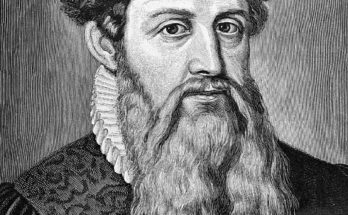Quick Facts
| Net Worth | Not Known |
| Salary | Not Known |
| Height | Not Known |
| Date of Birth | Not Known |
| Profession | History |
Every religion in the world has a piece of religious text that is considered to be authoritative and sacred by those that practice it. For example, Christians hold the Bible in very high regard and consider it to have come about as a result of divine inspiration. In this same manner, however slightly different, Muslims regard the Quran as the central text of the Islamic religion which came about as a result of a literal revelation to Prophet Muhammad by Allah.
Muslims further regard the Quran as Muhammad’s most important miracle as well as strong proof of his prophethood. Read on as we break down a few facts about the Quran, including details of who exactly wrote it, when it was written, and why it was written.
Who Wrote The Quran?
Muslims believe that through the archangel Jibril (Gabriel), Allah orally revealed the Quran to Prophet Muhammad. The first revelation he received from Allah is said to have come with a vision in the Cave of Hira during one of his isolated retreats to the mountains. These revelations would then go on to continue occurring for another 23 years, from 609 CE to 632 CE, the year he was reported to have passed away. The prophet received the revelation of the final verse after he had finished delivering his sermon at Ghadir Khumm.
The Prophet Muhammed was described in the Holy book as “ummi”, which can be translated mean to ‘illiterate’ but is understood to mean that he did not have the ability to read or write in general or that he was not knowledgable about earlier written sacred texts. The understandings of the meaning of “ummi” have gone ahead to play a huge part to the genuineness of his prophethood as according to scholars, if he either had the ability to read and write, or had been perceived to have studied sacred texts of the past, he would have been suspected of being a fraud.
With no knowledge of how to read and write, Muhammad taught these revelations to several of his companions who served as his scribes. By the time the prophet passed away, his teachings to his companions were compiled, although slightly different by each companion. These differences would prompt Caliph Uthman ibn Affan, a notable son-in-law, and companion of Prophet Muhammad to put together a standard version known as the Uthman index and what serves today as the standard version of the religious text. Other versions of the Quran can still be found today with variant readings and minor differences in meaning.
When And Why Was The Quran Written?
Following the death of Prophet Muhammad in 632 CE, many of his companions who had learned his teachings by heart were killed by Musaylimah, someone who Islam describes as a false prophet, in the Battle of Yamama. This prompted caliph Abu Bakr, a companion, and father-in-law of Muhammad, to become the first person to request for the teachings to be written in order to preserve it.
Zayd ibn Thabit, a personal scribe of the prophet, and a group of other scribes, collected all the verses from parchments, palm-leaf stalks, thin stones, and from men who knew it by heart to produce a hand-written manuscript of the complete book. Zayd went on to leave the book with Abu Bakr who held it until he died in 634. Muhammad’s widow, Hafsa bint Umar, was subsequently entrusted with the manuscript.
Around 650 CE, Caliph Uthman ibn Affan was said to have begun noticing discrepancies in the Quran as the religion expanded into Persia, the Levant, and North Africa. To preserve the sanctity of the teachings, he ordered other scribes, including Zayd, to use Abu Bakr’s copy and prepare a standard copy of the Quran that is used worldwide today.
Other Facts About the Islamic Holy book
1. The Quran is widely regarded as the finest work in classical Arabic literature. It is treated with reverence by Muslims and respect for its written text as an important element of religious faith.
2. The Quran shares similarities with a few narratives that appear in the bible. On some occasions, it gives an alternative account and interpretation of an event while on other occasions it either gives a longer or shorter version of an event.
3. A Muslim who has read and memorized the entire Quran is called a hafiz.
4. There are 114 chapters (known as the surah) in the Quran. Each chapter has varying lengths and is classified as either Meccan or Medinan, an indication of whether the verses in the chapter were revealed before or after Muhammad’s migration to the city of Medina.
Also Read: Top 10 Richest People in the world with full biography and details.




